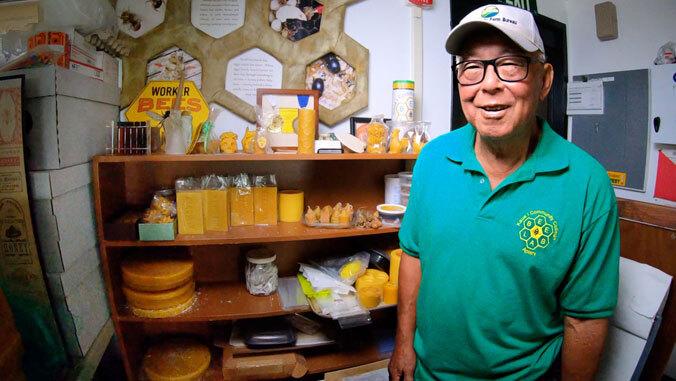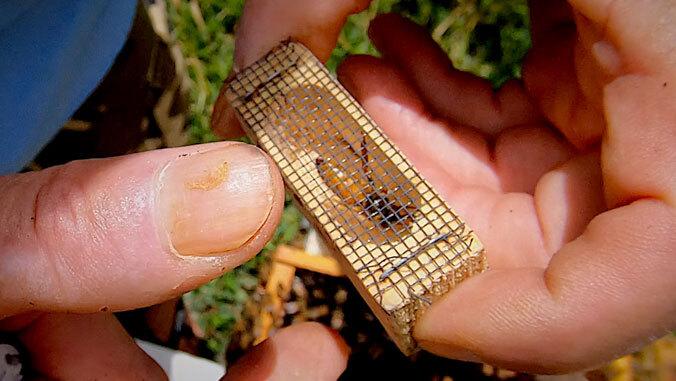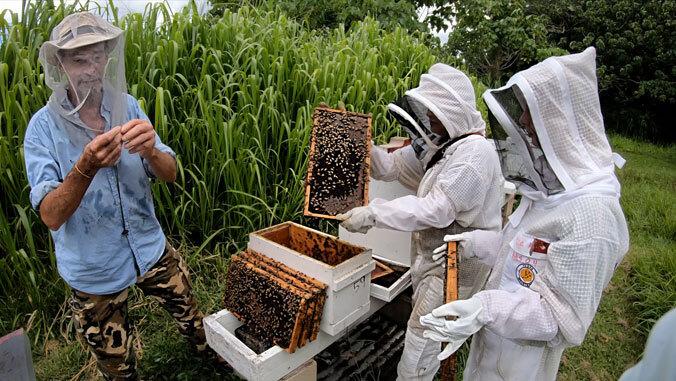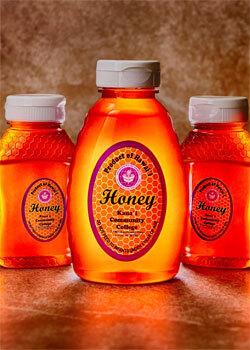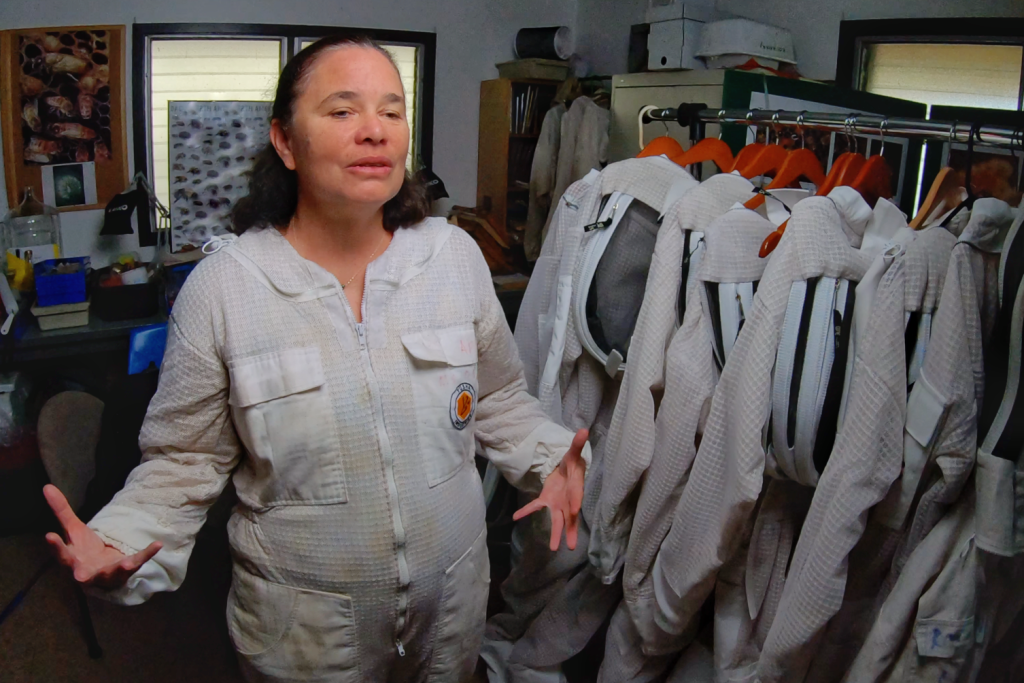Kauaʻi Community College’s honeybees are among the last disease-free hives in Hawai’i
A parasitic mite that is killing bees across the nation has yet to make its way to Kaua’i Community College’s beehive, where one of the last disease-free bee colonies in the state exists.
As part of the Kauaʻi Community College’s Apiary Project, volunteers and staff help to protect the island from the Varroa mites, a parasite that feeds on bee larvae and transmits viruses. According to recent study, the Varroa mite is responsible for the loss of 48% of U.S. beekeeper colonies, the second-highest death rate on record.
Kauaʻi CC’s hives are one of the few disease-free honeybee sites left in the state. According to the Hawaiʻi Department of Agriculture, Hawaiʻi was free of the varroa mite, until it was detected on Oʻahu in 2007. Since then, the Varroa mite has also been found on Hawaiʻi Island. Only Kauaʻi, Maui and Molokaʻi have so far remained free of the pest. The project aims to combat the problem with the breeding of queen bees in order to continue to protect the island from the threat.
“One of our main reasons for being is to be able to raise queens here right on the island, to make them available to other Kauaʻi beekeepers to lessen the chance that someone will import a queen bee,” said Alan Spencer, a volunteer and instructor.
Kauaʻi CC’s Apiary Project started in 2010 with some funding from the Kauaʻi Rural Development Project. Additional funding in later years came from the Hawaiʻi Department of Agriculture, a Carl D. Perkins Career and Technical Education grant and local donors. The college started offering continuing education classes in beekeeping and garnered first place awards in the Hawaiian Honey Challenge in 2018 and 2019. Then the COVID-19 pandemic hit.
Spencer and a cadre of volunteers kept the apiary alive. The lifesavers included retired electronics instructor Francis Takahashi Jr. and, more recently, Academic Advisor Valerie Melle.
“The long-term goal is to support beekeepers on Kauaʻi, offer technical support and really educate the public,” said Takahashi Jr. “Agriculture is really important on this island.”
Agriculture is also important far beyond Kauaʻi, as the Apiary Project estimates that one-third of Americans’ diet is directly or indirectly derived from honeybee pollination.
Melle got involved when she was looking for something different to do during the COVID-19 pandemic.
“This was the wildest thing that I saw happening on campus,” she said. “So I just jumped in and I was so inspired by their class that I’m still here.”
Melle has since taken on the role of volunteer marketer for the Apiary Project and has big ideas for the future, such as restarting the college’s application to the Department of Agriculture to export their bees. She recently got a query from a hotel that is interested in collaborating with Kauaʻi CC to start an onsite apiary as part of its hospitality and culinary offerings. There was also mention of someday being able to export to clientele in Japan.
The more immediate future may hold launching an adopt-a-beehive program to generate more education and support.
Interim Chancellor Margaret Sanchez said her long-term hope is to eventually have a for-credit program so that students may earn college credits along with a certificate in beekeeping.
“The overall hope is to expand our program and offer it to more people on Kauaʻi, so that we can increase the health of the bees, the health of our farms and the health of our crops,” Sanchez said.





